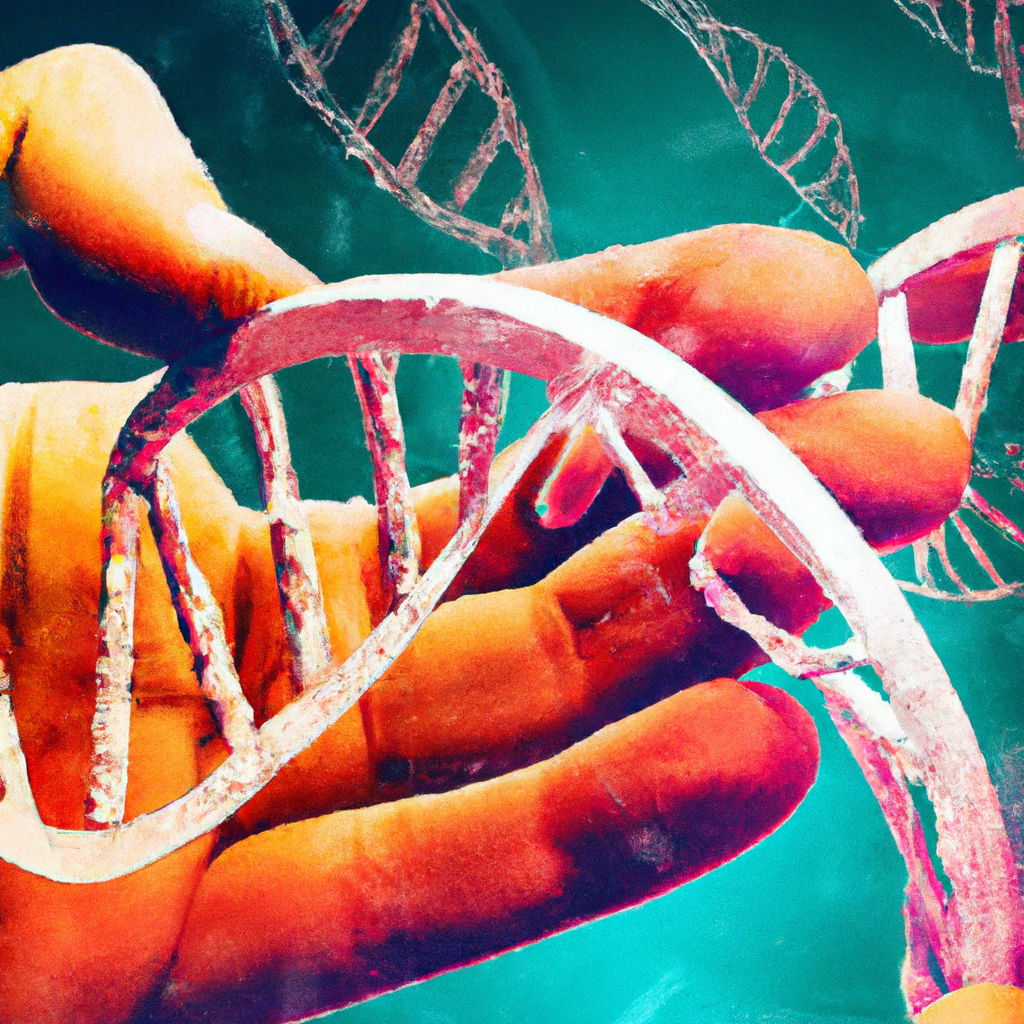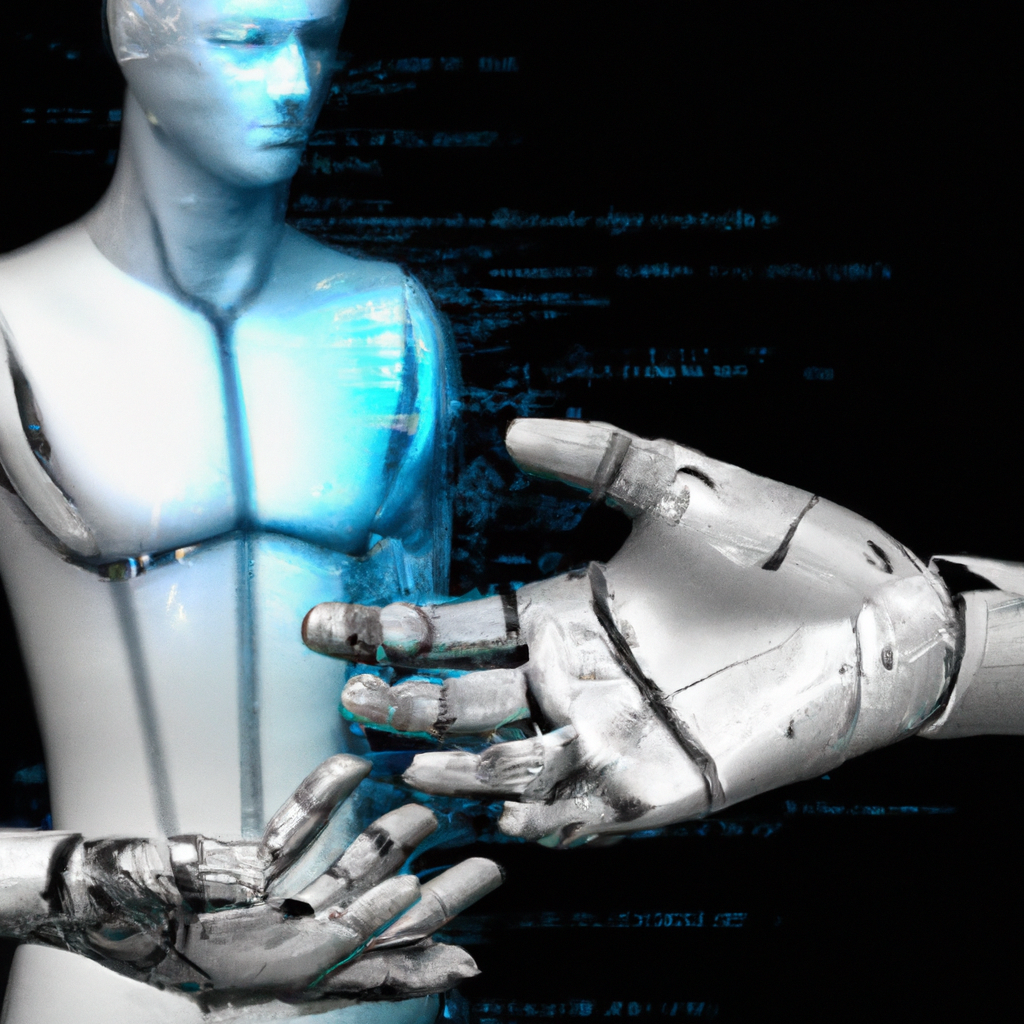In the world of genetic research and advancements, one particular technology has been making waves – CRISPR. This revolutionary technique, also known as CRISPR-Cas9, has the potential to edit genes with unparalleled precision. However, with this power comes great responsibility. As we explore the possibilities and ethical implications of gene editing with CRISPR, it becomes apparent that we are at a crucial crossroads in our understanding of genetics and our role in shaping the future. Let’s delve into this fascinating topic and discover the potential benefits and ethical considerations that come with harnessing the power of CRISPR.

Overview of CRISPR technology
Introduction to CRISPR
CRISPR (Clustered Regularly Interspaced Short Palindromic Repeats) technology is a revolutionary gene editing tool that has gained a lot of attention in recent years. It allows scientists to make precise changes to the DNA of living organisms, including humans, with unprecedented ease and accuracy. CRISPR has the potential to transform various fields, from healthcare to agriculture, by enabling us to edit genes and modify traits in a way that was previously unimaginable.
Mechanism of CRISPR
The mechanism of CRISPR is based on the natural defense system of bacteria against viruses. It consists of two main components: the Cas9 enzyme and a small RNA molecule. The RNA molecule is engineered to guide the Cas9 enzyme to a specific target sequence in the DNA. Once the Cas9 enzyme binds to the target DNA, it acts as a pair of molecular scissors, cutting the DNA strand at the desired location. This cut triggers the cell’s DNA repair machinery, which can be harnessed to introduce specific genetic changes.
Applications of CRISPR
The potential applications of CRISPR are vast and diverse. In the realm of healthcare, it holds promise for disease prevention and treatment. By editing genes associated with genetic disorders, researchers hope to mitigate the risk of developing certain diseases or even cure them. In agriculture, CRISPR can be used to enhance crops and livestock by introducing beneficial traits, such as disease resistance or increased yield. Additionally, CRISPR has the potential to revolutionize drug development by enabling the creation of new therapies tailored to individual patients.
Potential of Gene Editing with CRISPR
Disease prevention and treatment
CRISPR technology offers the possibility of eradicating genetic diseases by editing the DNA of affected individuals. For example, it could potentially correct genetic mutations associated with cystic fibrosis, sickle cell anemia, or Huntington’s disease. By editing the genes responsible for these conditions, it may be possible to prevent the onset of the diseases or minimize their severity. This approach offers hope to patients and their families who face a lifetime of managing these debilitating disorders.
Enhancing crops and livestock
With the world’s population projected to reach nearly 10 billion by 2050, the need for sustainable food production is more pressing than ever. CRISPR offers a promising solution by allowing scientists to genetically modify crops and livestock to be more resistant to pests, diseases, and changing environmental conditions. By enhancing the productivity and nutritional value of these agricultural commodities, we can ensure better food security and address global hunger challenges.
Creating new drugs and therapies
Another exciting potential application of CRISPR lies in the realm of drug development. Traditional drug discovery is often a lengthy and expensive process, but with the help of CRISPR, this could change. By using gene-editing techniques, scientists can create disease models that accurately mimic human conditions, enabling them to identify potential drug targets more efficiently. Additionally, CRISPR can be employed to engineer immune cells for targeted cancer therapies, providing new avenues for treating this devastating disease.
Ethical concerns in Gene Editing
Playing God and the sanctity of life
One of the fundamental ethical concerns surrounding gene editing is the fear of “playing God” and the challenge it poses to the sanctity of life. Critics argue that manipulating the genetic makeup of organisms goes against the natural order and could lead to unforeseen consequences. The potential for altering the germline cells, which would be passed on to future generations, raises concerns about the ethical boundaries of genetic experimentation and the potential for unintended harm.
Unequal access and social justice
While CRISPR offers great potential for improving human health, there are concerns about unequal access to these technologies. If gene editing becomes a privilege limited to the wealthy, it could exacerbate existing social inequalities. Ethical considerations must be addressed to ensure equitable distribution of benefits and prevent the creation of a genetic divide where only the privileged can afford genetic enhancements or protection against diseases.
Off-target effects and unintended consequences
Another significant ethical concern in gene editing is the possibility of off-target effects and unintended consequences. Despite advances in CRISPR technology, there is always a risk of genetic modification causing unintended alterations or impairments. The potential for unforeseen long-term effects on the organisms and the environment requires cautious consideration and ongoing monitoring to ensure the safety and ethical soundness of gene editing practices.
Regulation and Governance
Current regulations on gene editing
Given the potential societal implications and ethical concerns associated with gene editing, there is a need for robust regulatory frameworks. Several countries have implemented regulations to oversee the use of CRISPR and other gene-editing technologies. For example, in the United States, gene therapy products derived from gene editing must undergo rigorous evaluation by the Food and Drug Administration (FDA) to ensure safety and efficacy. These regulations aim to strike a balance between promoting scientific progress and upholding ethical standards.
International collaboration and guidelines
In an interconnected world, international collaboration is crucial for addressing the complex ethical and regulatory challenges posed by gene editing. Organizations such as the World Health Organization (WHO) and the International Society for Stem Cell Research (ISSCR) have played significant roles in developing guidelines and fostering global dialogue on responsible gene-editing practices. These collaborative efforts aim to harmonize regulations, promote transparency, and ensure that gene editing technologies are used responsibly and ethically across borders.
Ethical committees and public consultation
To ensure that gene editing technologies align with societal values, many countries have established ethical committees and encourage public consultation. These committees consist of experts from various fields and engage in rigorous ethical evaluation of proposed gene-editing research. Public consultation provides an avenue for the broader population to voice their concerns, contribute to decision-making processes, and ensure that the choices made reflect the collective values of society.

CRISPR’s Impact on Society and Culture
Changing perception of disability and difference
CRISPR’s potential to edit genes associated with disabilities raises important questions about society’s perception of disability and difference. On one hand, gene editing could be seen as an opportunity to mitigate the challenges faced by individuals with disabilities. On the other hand, it raises concerns about the societal pressure to conform to an idealized norm and the potential marginalization of those who do not fit within these narrow parameters.
Ethical considerations in designer babies
The ability to edit genes also raises the specter of designer babies, where parents can choose specific traits for their children. This raises ethical questions about the commodification of children and the potential for creating societal divisions based on genetic superiority. Striking a balance between allowing parents to make informed choices and preventing the creation of a eugenic society is a complex ethical challenge that requires careful thought and regulation.
Impact on biodiversity and ecosystems
Gene editing in the agricultural sector may have unintended consequences for biodiversity and ecosystems. While the enhancement of crops and livestock can increase food production, it may also lead to a loss of genetic diversity, making these organisms more vulnerable to diseases and environmental changes. Additionally, the release of genetically modified organisms into the environment raises concerns about potential ecological disruptions. It is crucial to consider the long-term impacts of gene editing on biodiversity and balance these with the short-term benefits.
Gene Editing and Human Enhancement
Advancements in genetic enhancement
The potential for genetic enhancement through gene editing raises ethical questions about the boundaries of human capabilities. While gene editing techniques could be used to eliminate genetic disorders and enhance human health, they could also be employed to enhance traits such as intelligence, physical appearance, or athletic abilities. This raises concerns about the implications for equality, fairness, and the potential for creating a genetically divided society.
Ethical implications of human enhancement
The pursuit of human enhancement through gene editing brings up ethical considerations related to notions of human identity and autonomy. Critics argue that it may undermine the value of human uniqueness and lead to a loss of diversity and acceptance of natural variations. Additionally, concerns about the unintended consequences and long-term effects of genetic enhancement on individuals and society necessitate careful ethical deliberation and comprehensive regulations.
Balancing benefits and risks
As with any new technology, it is essential to strike a balance between the benefits and risks associated with gene editing. While it holds immense potential for disease prevention and treatment, as well as agricultural and environmental improvements, caution must be exercised to ensure that the benefits outweigh the risks. By carefully considering the ethical implications, involving diverse voices in decision-making processes, and adopting responsible innovation practices, we can navigate these challenges and realize the full potential of gene editing.

Religious and Philosophical Perspectives
Religious views on gene editing
Religious perspectives on gene editing vary, with different faith traditions offering different perspectives on the ethical implications of editing the genetic code. Some religious communities emphasize the sanctity of life and caution against manipulating nature, while others may see gene editing as a means to alleviate suffering and promote human flourishing. It is important to engage in interfaith dialogue and incorporate diverse religious perspectives when discussing the ethical dimensions of gene editing.
Secular ethical frameworks
Secular ethical frameworks offer a basis for evaluating the ethical considerations surrounding gene editing. Principles such as autonomy, justice, consent, and non-maleficence provide a framework for understanding the rights and responsibilities involved in gene editing practices. Balancing individual autonomy with societal concerns and ensuring equitable access to these technologies are key considerations within secular ethical frameworks.
Concepts of consent and autonomy
In the realm of gene editing, concepts of consent and autonomy become particularly significant. Gene editing has the potential to affect not only the individual undergoing the procedure but also future generations. Ethical deliberations must prioritize informed consent, ensuring that individuals have a clear understanding of the risks and benefits associated with gene editing and that their autonomy is respected throughout the process. Balancing the desires of individuals and the potential impacts on society is a delicate ethical challenge.
CRISPR in the Legal Landscape
Intellectual property rights in gene editing
The rapid advancement of gene editing technologies has raised questions about intellectual property rights. The ability to patent specific gene editing techniques, processes, or applications can create exclusive rights for certain individuals or institutions, potentially hindering scientific progress and limiting access to these technologies. Ensuring a balance between rewarding innovation and fostering broader scientific advancements requires careful navigation of the legal landscape surrounding gene editing.
Legal challenges and patent disputes
The complex nature of gene editing technology has led to legal challenges and patent disputes. Innovators in the field strive to protect their intellectual property, while others seek to ensure the availability of these technologies for the greater good. Balancing the interests of different stakeholders and resolving legal disputes in a fair and equitable manner is crucial for fostering innovation and advancing the field of gene editing.
Ethical implications of patenting life
The practice of patenting gene editing technologies raises ethical concerns regarding the commodification of life. Granting patents on living organisms or gene sequences can create monopolies and limit access to these technologies. Critics argue that patenting life undermines the collective ownership of genetic resources and imposes barriers to scientific progress. Ethical considerations must be taken into account when determining the proper balance between rewarding innovation and ensuring accessibility and affordability.

Future Directions and Challenges
Clinical trials and regulatory hurdles
As CRISPR technology progresses, the next phase involves conducting clinical trials to assess its safety and efficacy in human subjects. This presents multiple challenges, including regulatory oversight, maintaining patient safety, and addressing concerns about unintended consequences. Clear guidelines and well-defined regulatory frameworks will be essential to navigate these challenges and ensure that gene editing technologies reach their full potential in a responsible and ethical manner.
Public perception and education
Public perception of gene editing technologies is critical for their acceptance and responsible use. Educating the public about the scientific advances, potential benefits, and ethical considerations of gene editing is crucial in shaping public opinion. Open and transparent communication, coupled with efforts to demystify the technology and address misconceptions, can foster informed dialogue and enable individuals to make informed choices regarding their attitudes and preferences related to gene editing.
Global cooperation and responsible innovation
To address the ethical implications and challenges associated with gene editing, global cooperation and responsible innovation are essential. International collaboration allows for the sharing of best practices, harmonization of regulations, and the development of global guidelines that promote responsible and ethical gene editing practices. By working together, scientists, policymakers, and ethicists can ensure that gene editing technologies are used in a manner that prioritizes human well-being, environmental sustainability, and social justice.
Conclusion
CRISPR technology holds immense promise for advancing various fields, from healthcare to agriculture. However, the potential of gene editing comes with ethical concerns that must be carefully considered and addressed. Striking a balance between the benefits and risks of gene editing, ensuring equitable access, and fostering responsible innovation are essential for harnessing the full potential of CRISPR in a manner that respects human values, societal needs, and the sanctity of life. Through thoughtful regulation, global cooperation, and ongoing ethical dialogue, we can navigate the complex landscape of gene editing and create a future that benefits all of humanity.













